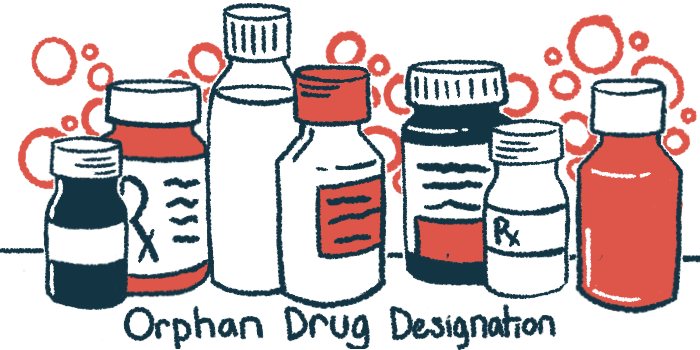FDA grants orphan drug designation to glioblastoma treatment
Experimental therapy cintredekin besudotox targets aggressive brain cancer
Written by |

The U.S. Food and Drug Administration (FDA) has granted orphan drug designation to an experimental therapy called cintredekin besudotox (IL13-PE38QQR), which Precision Neuromed is developing to treat glioblastoma, a form of glioma.
The FDA gives this designation to investigational medicines that are designed to treat diseases affecting fewer than 200,000 people in the U.S. The designation is aimed at providing extra incentives to companies investing in treatments for rare diseases, where there are, by definition, small markets that can make it hard to turn a profit. Among other perks, therapies granted orphan drug designation get a guaranteed seven years of market exclusivity free from generic competitors if they are approved.
“Receiving Orphan Drug Designation is an important milestone for Precision NeuroMed as we advance our mission to transform treatment for patients with glioblastoma, one of the most aggressive and devastating brain cancers,” Sandeep Kunwar, MD, CEO and co-founder of Precision Neuromed, said in a company press release.
Glioblastoma treatment options are limited
Glioblastoma is an aggressive form of glioma, a category of brain cancer that arises due to the uncontrolled growth of cells called glia. Treatment options for glioblastoma are limited, usually relying on surgery followed by radiation and medication.
With current therapies, most people with glioma will die within about a year of being diagnosed, and only about 1 in 20 will live more than five years with the disease. According to Precision Neuromed, this type of brain cancer kills more than 12,000 people in the U.S. each year.
Cintredekin besudotox is a fusion protein containing a signaling molecule called IL-13 that’s attached to a piece of a protein called PE38. This is a toxic protein derived from the bacterium Pseudomonas aeruginosa.
Glioblastoma cells tend to express high levels of receptors for the IL-13 signaling molecule, called IL-13 alpha-2 receptor (IL-13R). When the IL-13 in cintredekin besudotox binds to these receptors, the cancer cells will take in both the signaling molecule and the toxic protein, and the toxic protein will then kill the cells. The experimental therapy was engineered using Precision Neuromed’s platform that aims to efficiently deliver medications to the location of tumors in the brain.
“By combining innovative drugs with our next-generation delivery system, we hope to dramatically improve outcomes where few effective options currently exist,” Kunwar said.




